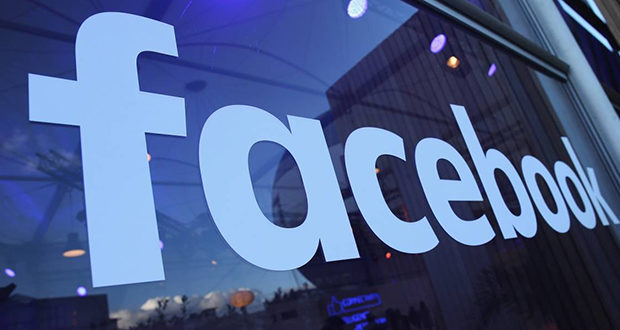The media, communications pros, lawmakers and investors – along with the rest of the world – continuously asked: where is Facebook CEO Mark Zuckerberg in the wake of the spiraling Cambridge Analytica private data crisis.
Zuckerberg and Facebook faced significant media criticism for not addressing reports that Cambridge Analytica obtained the private data of tens of millions of the platform’s users.
After four days of silence – an eternity in a global crisis – communications experts challenged the Facebook leader to step forward.
“This is the same Mark Zuckerberg that had time to tour the country and go around small towns when people were wondering if he was running for office. Suddenly, he’s absent,” Rose Tantraphol, adjunct instructor in the Advertising + Public Relations Department in Michigan State University’s College of Communication Arts and Sciences told PRWeek. “With every hour he doesn’t step into his leadership role, he’s worsening that leadership vacuum everyone is watching right now.”
Facebook’s latest turn in media scrutiny broke on Saturday, March 17, when The New York Times and The Guardian revealed that Cambridge Analytica harvested information on 50 million users. Cambridge then used the data to power its ad-targeting campaign for Donald Trump’s 2016 presidential campaign.
Facebook is facing significant headwinds in other parts of the world. In Europe, the General Data Protection Act is set to take effect in May across all 28 E.U. states, forcing tech companies that rely on data collection to disclose an unprecedented amount of information, according to PRWeek.
Facebook should be especially careful in communicating with advertisers, experts say. A report by Pivotal Research Group indicates that Facebook may restrict what data it shares, “frustrating many of their commercial partners.”
Maybe Facebook executives have learned, too slowly, that a trust breach is profoundly more damaging than a data breach. The elegantly simple remedies for the former are spelled out in the Public Relations Society of America’s (PRSA) Code of Ethics – as detailed in a plea from PRSA National Chair Anthony D’Angelo during this latest crisis.
Implementing them can require extraordinary courage, a thick skin and hard, sustained work. Not implementing them will lead to further erosion of trust and market capitalization, and a commensurate increase in government hearings and industry regulation.
Zuckerberg, after a glacial delay, finally responded to the public outcry for information via “Anderson Cooper 360” and various other statements in a media tour. An apology is an important start, but it’s reactive. Here are applicable values and principles from the PRSA Code of Ethics that Facebook should advance:
Honesty and fairness. This is essential for informed decision-making in a democratic society. In short, come clean and play fair. If there is unpleasant news about what has happened, Zuckerberg and Sheryl Sandberg, share it completely and quickly for Facebook’s benefit as well as the public’s. You do not want it to come from other sources, as has been happening since 2015 with this matter.
Free flow of information, which trusted organizations consistently advance. Don’t deflect, obfuscate or dissemble. Don’t have attorneys take over communications, which inherently sends a suspicious message.
Act promptly to correct erroneous communications. Crises can have huge magnitude as one-time events, or they can have protracted, steady-drip effects. Facebook’s Cambridge Analytica scandal has both. Zuckerberg finally answered the urgent question, “Where are you on this?” Therefore, he and other Facebook leaders must spell out what they’re doing to fix every aspect of every relevant problem and report steadily on progress.
Disclosure of information, to build trust with the public by revealing all information needed for responsible decision-making. After reports this past weekend by The New York Times and the Observer of London, the deputy general counsel at Facebook said, “Everyone involved gave their consent.” Can informed consent happen when millions of Facebook users are seemingly expected, for their own protection, to turn off app settings that they aren’t aware exist?
Reveal the sponsors for causes and interests represented. The information consumer has a right to know whether a message is sponsored and who is sponsoring it.
Safeguarding confidences, to provide appropriate protection of confidential and private information. It is not unethical to keep proprietary information confidential; any company must do so to protect intellectual property and strategies to compete in a robust business environment. However, that information cannot be safeguarded if it harms the interests of the nation or society.
Conflicts of interest must be avoided or ended to ensure one’s professional or personal interests are not in conflict with society’s interests. This requires transparency, and transparency requires speed and consistency to enable trust.
So we challenge Facebook executives to continue to address the Cambridge Analytica crises by engaging PR pros – either on staff or through an external agency – that know PRSA’s Code of Ethics, and can steer the social media ship out of troubled waters.
Crashed Mic | United Airlines continues PR tailspin
To say that United Airlines reputation has been dogged is a massive understatement!
Just days after the airlines accidentally shipped a dog to Japan instead to Kansas City with its family, who are from Wichita, the carrier hit more turbulence when a small dog died during a flight from Houston to New York. This happened after a flight attendant insisted its owner place the dog in an overhead bin.
The owner found the black French bulldog dead at the conclusion of the 3-1/2 hour flight.
Putting animals in the overhead compartment is against the airline’s policies, which say pets are required to travel in carriers that “must fit completely under the seat in front of the customer and remain there at all times.” United has launched and investigation into why an attendant did this.
The dog death was just the latest in a string of controversies for the airline – which has been struggling to regain passenger confidence since last April, when a traveler was forcibly removed from a jet at Chicago’s O’Hare International Airport.
The incident, involving passenger David Dao had lawmakers calling for a hearing on the airline industry’s treatment of passengers and put CEO Oscar Munoz in the hot seat for his handling of what become a PR nightmare.
And just last August, a Houston family blamed United for the death of their 5-year-old King Charles spaniel. The dog was in the cargo hold of a flight that was held on the tarmac for two hours before taking off for San Francisco.
This dog tale won’t go away, and United’s reputation remains, well, in the doghouse.
Each week, The Spin Cycle will bestow a Golden Mic Award to the person, group or company in the court of public opinion that best exemplifies the tenets of solid PR, marketing and advertising – and those who don’t. Stay tuned – and step-up to the mic! And remember … Amplify Your Brand!

